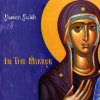Our Lord Jesus Christ gave us the keys of restorative healing and synergy with God with words like these: “Love your enemies, bless those who curse you, do good to those who hate you.” Saint John Chrysostom helped to prove it in his treatise that demonstrated if a man doesn’t suffer injury by his own hand then nothing or no one can harm him. In a time where so many derive self-worth from how they’re perceived by strangers on social media, while surveys show church attendance decreasing – well before the pandemic – Saint John’s words have never been more relevant and needed in order to bring a portion of God’s people back to Him in soul-saving humility.
A great man is one who collects knowledge the way a bee collects honey and uses it to help people overcome the difficulties they endure - hunger, ignorance and disease!
- Nikola Tesla
Remember, remember always, that all of us, and you and I especially, are descended from immigrants and revolutionists.
- Franklin Roosevelt
While their territory has been devastated and their homes despoiled, the spirit of the Serbian people has not been broken.
- Woodrow Wilson
Latest Articles
- Crafting Pišanice - Serbian Easter Eggs with Natural Dyes
- From Nicaea to Today: The Enduring Legacy of Synodality and Unity in the Church
- The Role of the Deacons in the Church
- The Circle of Serbian Sisters
- Vinka Ellesin
- Богородица као екстатично биће
- Bishop Maxim's Homily During the Assembly of Bishops XII Opening Liturgy
- Leon Joseph Lysaght Jr.
- Olga Gradojevich
People Directory
Dejan Jovanovic
Jewelry artist, Dejan Jovanovic was born in Serbia and has been established in Washington, DC since 2002. He graduated in applied sculpture from Belgrade University of the Arts, received his MFA in metal design from ECU School of Art and Design and has won numerous international awards and prizes. . Read more ...Publishing
In the Mirror
A Collection of Iconographic Essays and Illustrations
By Fr. Stamatis Skliris
The Serbian Orthodox Diocese of Western America is pleased to announce the publication of an outstanding book by Fr. Stamatis Skliris, a disciple of the great twentieth-century theologians Archimandrite Justin Popovich and Bishop Athanasius Yevtich. Fr. Stamatis is a parish priest in Athens and is renowned as an iconographer and as a writer and lecturer on Byzantine iconography.
In the Mirror is the second of a planned collection of works of contemporary theologians. It is an anthology of Fr. Stamatis’ articles which have appeared in Greek and Serbian. In it, he combines adherence to the teachings of the Church Fathers with a vibrant expression of faith through the experience of Christ in the Church. The book is adorned with more than 200 striking icons and illustrations by Fr. Stamatis.
Read more ...Latest US News
- Волт Богданић: Американац српског порекла добитник три Пулицерове награде за истраживачко новинарство
- The American Srbobran - Building a Partnership with the Library of Congress and Institutions in Serbia
- „Американски Србобран“ унапређује сарадњу са Конгресном библиотеком у Вашингтону и институцијама у Србији
- Преминуо чувени амерички песник српског порекла Чарлс Симић
- Јован Дучић међу великанима у кливлендској башти
- Србија, Африка, Америка и Канада славе дан Теслиног рођења
- Документарац Немање Станковића приказан у Холивуду
- Tesla Rhapsody
- Saved by Beauty: Dostoevsky in New York
- Izložba likovnih radova o Dostojevskom
- Steve Popovich - the man who discovered Meat Loaf
- Odlazak čoveka koji je mnogo uradio za očuvanje sećanja na lik i delo Nikole Tesle
- Naš otac Balkanac za Ruse je smislio bijelu Coca-Colu
- Neverovatan poduhvat srpske pravoslavne zajednice u Americi
- Prva Srpkinja u finalu najveće evropske nagrade za pronalazače
Latest Serbia News
- На Станфорд листи 15 крагујевачких научника
- Naše postojanje skriva mračne i svetle strane, i veliko je umeće prepoznati ih i razlučiti
- Српска застава је најлепша на свету – на основу резултата анкете милион људи
- Недеља америчке културе
- Preminuo pisac Aleksandar Petrov
- Spomenik Branku Pešiću radiće srpski vajar iz Los Anđelesa
- Metropolitan Amfilohije buried in the Cathedral church in Podgorica
- Memorial prayer rite for Metropolitan Amfilohije in the Cetinje Monastery
- На данашњи дан рођен је Михајло Идворски Пупин
- Алекса је стигао до Принстона, али Математичкој гимназији се радо враћа
- Каубој православац и 40 Американаца посетили Косово
- Архив Војводине: Сведочанства времена у спомен на херојске претке
- Премијера „Теслиног народа“ на Коларцу
- Када се велики умови играју науком о подацима
- Američka vojska donirala je vrednu opremu klinici u Nišu





